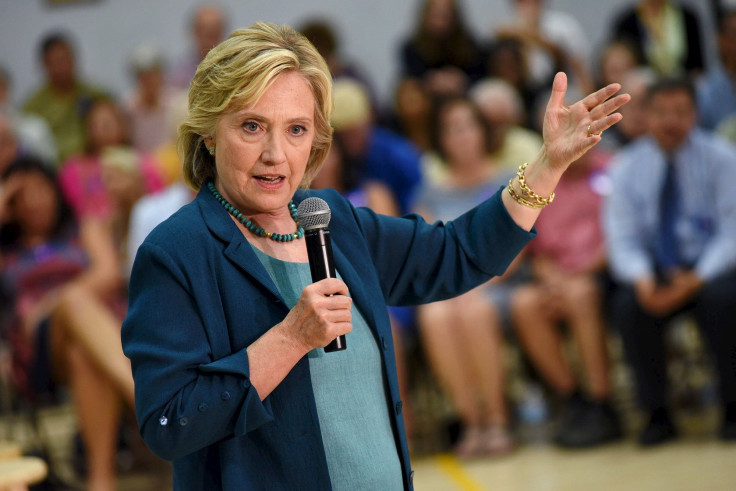Hillary Clinton To Unveil Plan To Fight Drug 'Price Gouging'

WASHINGTON (Reuters) - Democratic presidential candidate Hillary Clinton will unveil a plan this week to cap out-of-pocket costs for specialty drugs, her campaign said on Monday, as a tweet from Clinton accusing companies of "price gouging" sent biotech stocks tumbling.
Clinton was expected to allude to her plan in public remarks on Monday and spell it out in more detail at a health-care forum in Des Moines, Iowa, on Tuesday, an official with her campaign said.
Clinton, who leads the field seeking the Democratic Party's nomination for president in the November 2016 election, maintained her front-runner status with about 48 percent of support in a recent Reuters/Ipsos opinion poll.
Still, she has been under pressure to take more populist stances to widen her lead over the current second-place Democratic candidate, U.S. Senator Bernie Sanders. Clinton could face more hurdles if Vice President Joe Biden enters the race.
Sanders already has introduced legislation in the Senate to crack down on what he called "skyrocketing" increases in prescription drug prices.
On Monday, shares in biotech companies such as Immunogen and Gilead Sciences dropped after Clinton tweeted that steep prices for specialty drugs were "outrageous."
"Tomorrow I'll lay out a plan to take it on," she said. She pointed to a New York Times story about a 62-year-old drug to treat a deadly parasitic infection that soared in price to $750 a tablet from $13.50 after the drug was bought in August by a start-up pharmaceutical company.
"Big Pharma" companies have long been criticized for steadily raising prices of prescription medicines in the United States, unrestrained by price controls that are common in other countries.
Also controversial has been a strategy of raising prices for older drugs after being acquired by other companies. Examples include the heart medications Nitropress and Isuprel, which were bought by Valeant Pharmaceuticals Inc this year.
Clinton's comments on Monday were her first about how to tackle high drug prices, but she has talked about the problems facing consumers before.
In June, Clinton said drug companies that benefit from a Pacific trade pact should offer bulk discounts on products to U.S. government programs such as Medicare.
The iShares Nasdaq Biotech ETF, which tracks an index of biotechnology and pharmaceutical stocks, was down about 4.3 percent at 341.48 on Monday afternoon. The Nasdaq biotech index skidded 4.3 percent.
For more on the 2016 presidential race, see the Reuters blog, "Tales from the Trail" (http://blogs.reuters.com/talesfromthetrail/).
(Additional reporting by Ransdell Pierson in New York and Amanda Becker in Little Rock, Arkansas; Editing by Leslie Adler)



























